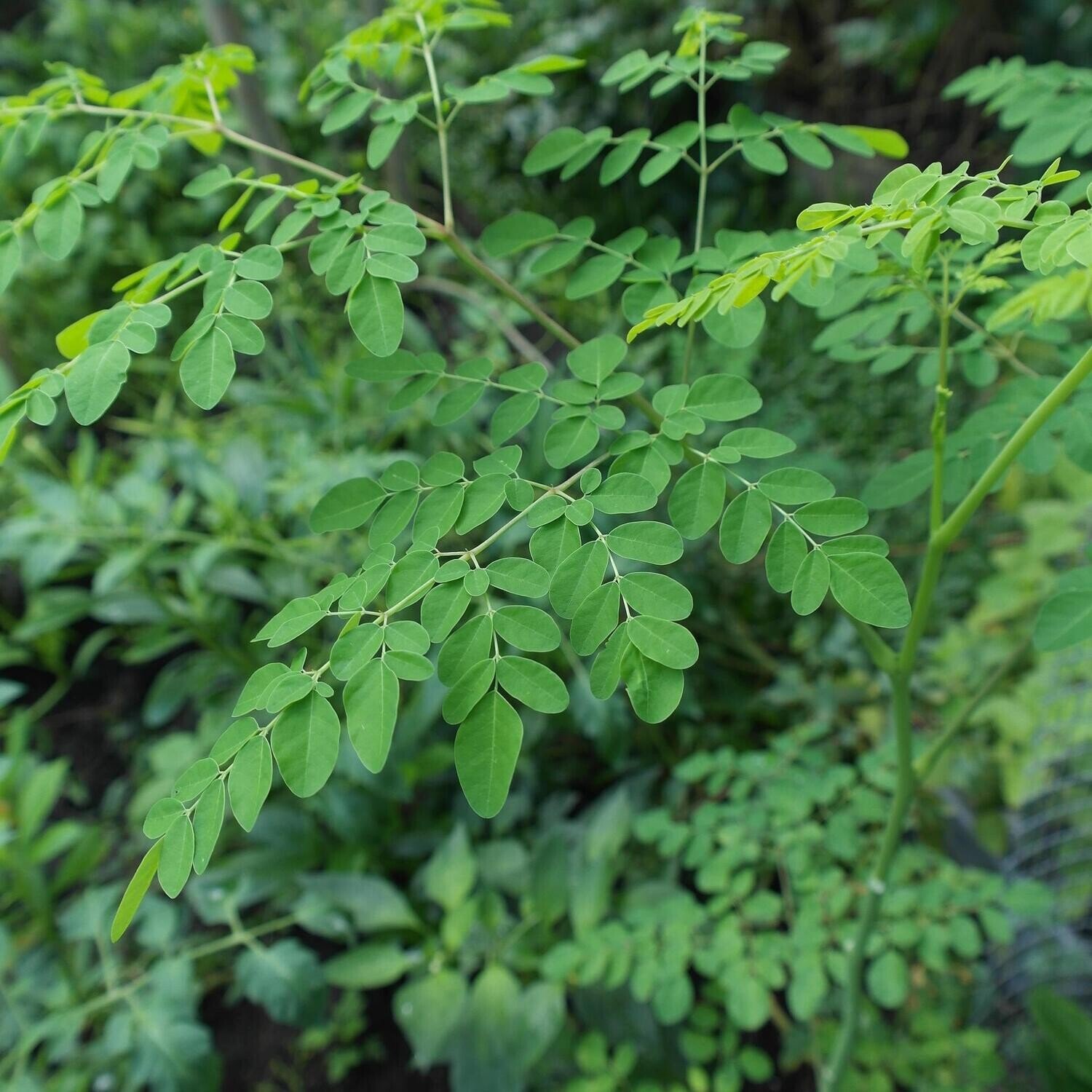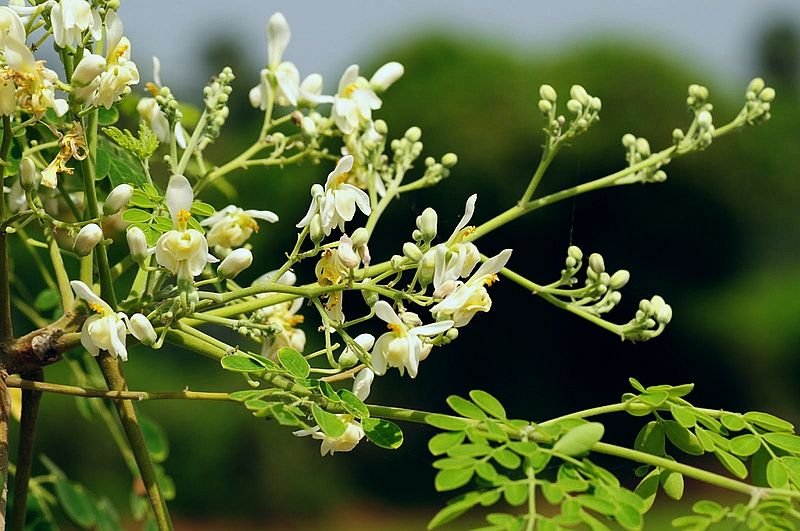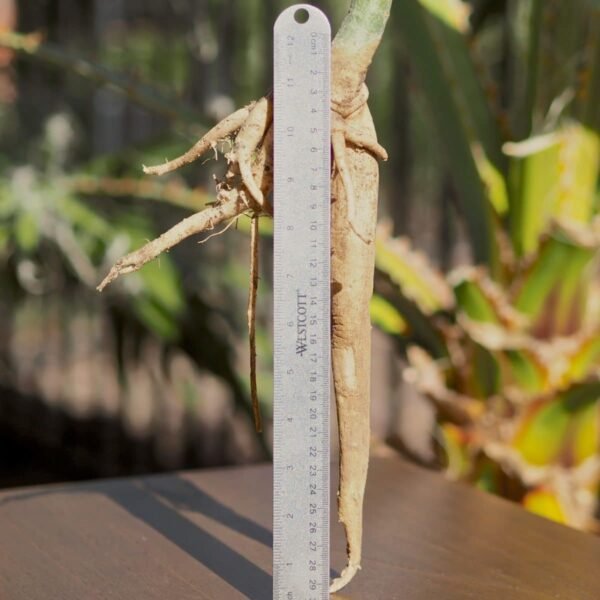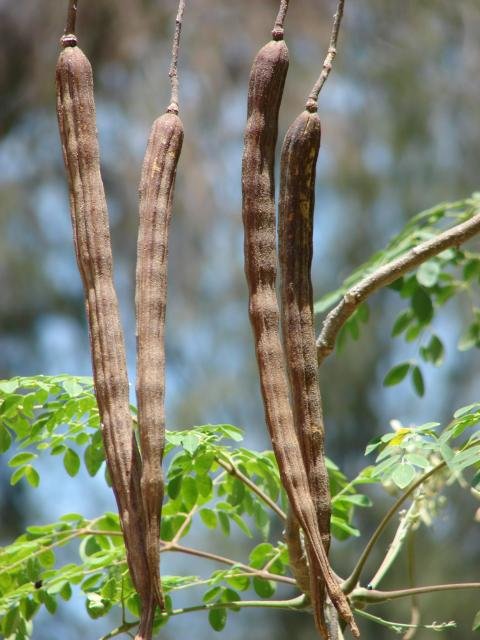 Image 1 of 7
Image 1 of 7

 Image 2 of 7
Image 2 of 7

 Image 3 of 7
Image 3 of 7

 Image 4 of 7
Image 4 of 7

 Image 5 of 7
Image 5 of 7

 Image 6 of 7
Image 6 of 7

 Image 7 of 7
Image 7 of 7








Moringa Seeds (Moringa oleifera)
Moringa oleifera is also known as the “Miracle Tree” and it truly lives up to it’s name! Extremely fast growing and drought tolerant, Moringa is an ideal support species for subtropical/tropical food forests. When planted from seed, they develop a long, thick taproot that retains moisture and nutrients, allowing them to withstand long periods of dry conditions. This resilient tree provides many benefits in a food forest context:
Fast growth rate provides much needed shade and protection in the early stages of a food forest.
Light, feathery foliage allows enough sunlight to reach understory plants.
Handles pruning like a champion and provides an abundance of nutritious biomass.
Flowers prolifically and attracts many beneficial insects.
Edibility: The leaves, seeds, flowers, young seedpods and roots are edible and highly nutritious. Can be used as supplementary feed for livestock.
Site Preference: Moringa is native to semi-arid regions of the world and prefers drier conditions and full sun. Does not do well in soggy, shady conditions.
Propagation: Moringa does best when directly seeded as this allows for best development of their long taproot. Sow more seeds than you need and thin accordingly, leaving only the more vigorous, healthy plants. Can also be propagated with cuttings (though you lose the benefits of the long taproot).
Moringa Oleifera, 2.5 oz. (250+ seeds)
Moringa oleifera is also known as the “Miracle Tree” and it truly lives up to it’s name! Extremely fast growing and drought tolerant, Moringa is an ideal support species for subtropical/tropical food forests. When planted from seed, they develop a long, thick taproot that retains moisture and nutrients, allowing them to withstand long periods of dry conditions. This resilient tree provides many benefits in a food forest context:
Fast growth rate provides much needed shade and protection in the early stages of a food forest.
Light, feathery foliage allows enough sunlight to reach understory plants.
Handles pruning like a champion and provides an abundance of nutritious biomass.
Flowers prolifically and attracts many beneficial insects.
Edibility: The leaves, seeds, flowers, young seedpods and roots are edible and highly nutritious. Can be used as supplementary feed for livestock.
Site Preference: Moringa is native to semi-arid regions of the world and prefers drier conditions and full sun. Does not do well in soggy, shady conditions.
Propagation: Moringa does best when directly seeded as this allows for best development of their long taproot. Sow more seeds than you need and thin accordingly, leaving only the more vigorous, healthy plants. Can also be propagated with cuttings (though you lose the benefits of the long taproot).
Moringa Oleifera, 2.5 oz. (250+ seeds)
Moringa oleifera is also known as the “Miracle Tree” and it truly lives up to it’s name! Extremely fast growing and drought tolerant, Moringa is an ideal support species for subtropical/tropical food forests. When planted from seed, they develop a long, thick taproot that retains moisture and nutrients, allowing them to withstand long periods of dry conditions. This resilient tree provides many benefits in a food forest context:
Fast growth rate provides much needed shade and protection in the early stages of a food forest.
Light, feathery foliage allows enough sunlight to reach understory plants.
Handles pruning like a champion and provides an abundance of nutritious biomass.
Flowers prolifically and attracts many beneficial insects.
Edibility: The leaves, seeds, flowers, young seedpods and roots are edible and highly nutritious. Can be used as supplementary feed for livestock.
Site Preference: Moringa is native to semi-arid regions of the world and prefers drier conditions and full sun. Does not do well in soggy, shady conditions.
Propagation: Moringa does best when directly seeded as this allows for best development of their long taproot. Sow more seeds than you need and thin accordingly, leaving only the more vigorous, healthy plants. Can also be propagated with cuttings (though you lose the benefits of the long taproot).
Moringa Oleifera, 2.5 oz. (250+ seeds)